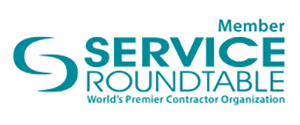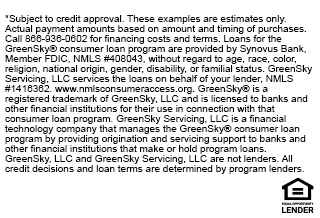The Impact of Southern California’s Hard Water on Plumbing Systems
You might not see it at first, but every drop of water in your home carries minerals, mainly calcium and magnesium, that over time can wreak havoc on your plumbing system. In Southern California, hard water is common, and its long-term effects are often hidden until they force homeowners to call a plumber.
At Canyon Hills Plumbing, we see firsthand how hard water gradually stresses pipes, fixtures, and appliances across Murrieta, Temecula, Lake Elsinore, Menifee, Wildomar, Winchester, and beyond.
Here’s what hard water does, how to spot the warning signs, and what you can do to protect your plumbing system.
What Is Hard Water and Why We Have It Here
Hard water is water that contains higher levels of dissolved minerals, mainly calcium and magnesium. As water travels through soil and rock, it picks up these minerals.
These minerals are mostly harmless to your health, but when that water flows through your plumbing system, they gradually accumulate and form scale on the inner surfaces of pipes, fixtures, and appliances. Over time, this scaling narrows flow, restricts function, and causes further wear.
In a place like Southern California, with many homes having aging infrastructure, high temperatures, and heavy appliance use, the effects of hard water are especially magnified.
How Hard Water Damages Your Plumbing Over Time
Here are some of the most common impacts we see in our service area:
Reduced Flow and Clogs
Mineral deposits cling to the walls of pipes, narrowing them and making it harder for water to pass. Over time, this can contribute to partial blockages or full stoppages.
Premature Appliance Wear
Water heaters, dishwashers, and washing machines struggle to heat water efficiently when scale builds up on heating elements. This causes higher energy bills and more frequent breakdowns.
Leaky or Malfunctioning Fixtures
Faucets, showerheads, and valves often show signs of scaling such as restricted spray, dripping, or stiff handles. Sediment can also damage internal cartridges and seals.
Pipe Corrosion and Weakening
In some cases, mineral deposits create uneven stresses and micro-abrasions that accelerate corrosion in metal pipes, especially older copper or galvanized systems.
High Maintenance and Repair Costs
Over time, avoiding the effects of hard water becomes expensive. Frequent repairs, part replacements, and more aggressive cleaning all add up.
Hot Water System Strain
Because heating water encourages scale to precipitate out of solution, water heaters in hard water areas are especially at risk. Sediment buildup forces the unit to work harder and shortens its life.
Signs That Hard Water Is Affecting Your Home
If any of the following show up in your home, hard water might be the reason:
| Sign | What You’ll See or Feel | Why It Happens |
| White chalky deposits or crust | Around faucets, showerheads, inside kettles | Mineral scale is depositing as water evaporates |
| Reduced water pressure | Slower flow in showers and faucets | Pipes constrict over time due to mineral buildup |
| Spots on dishes and glassware | White film or residue after washing | Minerals left behind after water evaporates |
| Appliances failing or heating slowly | Water heater inefficiency, dishwasher problems | Scale insulates heating elements, reducing performance |
| Shorter appliance lifespan | More frequent replacement of water-using devices | Constant stress and internal wear from mineral deposits |
| Higher utility bills | Gradual increase in energy or gas usage | Equipment works harder to heat or push water through restricted lines |
What You Can Do to Prevent or Reduce Damage
Knowing the problem is half the battle. Here are effective ways to protect your system:
Install a Water Softening or Conditioning System
Ion-exchange softeners replace calcium and magnesium with sodium or potassium.
Salt-free conditioners alter the mineral structure to reduce scale buildup.
Many Southern California homes benefit from a whole-house softener installed at the main water line.
Schedule Regular Descaling and Maintenance
Annual flushes or descaling of pipes and water heaters help slow scale accumulation.
Professional hydro-jetting or chemical descaling clears interior buildup and improves flow.
Use Targeted Filters at Key Appliances
For dishwashers and ice makers, in-line filters or softening cartridges reduce localized scale.
Point-of-use filters for kitchen sinks or fridges help where cleaner water is essential.
Monitor and Repair Early
Watch for drips, slow drains, or stiff faucets. Replacing seals and cartridges early can prevent full failure.
Use Water Heaters with Scale Resistance
Some newer water heaters include scale-resistant features or are easier to flush.
Tankless water heaters can be more efficient in hard water areas if properly maintained.
Why Canyon Hills Plumbing Is Your Hard Water Partner
Because hard water effects build slowly, it takes forward-thinking, consistent care to stay ahead. Here’s how we help homeowners in the area:
- Free estimates and system recommendations based on your actual water conditions
- Water softener installation and service
- Hydro-jetting and descaling services
- Routine inspections and maintenance plans
- Repiping options for homes with heavily scaled or corroded pipes
We know how to handle the water chemistry and plumbing systems unique to Murrieta, Temecula, Menifee, Lake Elsinore, and surrounding communities.
What Hard Water Costs You Over Time
The hidden cost of hard water adds up. Here’s what many homeowners don’t realize:
- Higher energy use from struggling appliances
- Reduced lifespan of water heaters, faucets, and dishwashers
- More cleaning products used to fight mineral residue
- Frequent plumbing service calls
- Potential code violations or resale issues if plumbing systems are degraded
Take Control
- Test your water hardness using a store-bought kit or professional service
- Watch for early signs like low pressure or chalky deposits
- Get professional advice on softening or filtration
- Descale systems before damage becomes costly
- Set up a maintenance plan with a trusted local plumbing company
FAQs
Is hard water dangerous to drink?
No. It’s not a health hazard. The bigger issue is how it affects plumbing and appliance performance.
Can I just use more soap or detergent to counteract hard water?
More soap won’t solve the problem. In fact, hard water makes soap less effective, creating residue and buildup.
How long does a softener last?
With proper maintenance, most systems last 10 to 15 years.
Can I treat just one part of my home?
Yes. Point-of-use softeners or filters can be installed for drinking water taps or appliances. However, this won’t protect your full plumbing system.
Does softened water void any warranties or violate codes?
Generally no, but some appliance warranties require softened water. Always check your manufacturer documentation.
Final Thoughts
Hard water is an invisible problem until it’s not. It slowly wears down your plumbing system, increases your energy use, and shortens the life of everything from water heaters to faucets.
If you live in Southern California, you’re already dealing with it. But you don’t have to wait for things to break down. Canyon Hills Plumbing offers full-service solutions for testing, treatment, descaling, and repair.
Contact us today to protect your plumbing from the effects of hard water and extend the life of your system.
Limited Time Offer: No Payments, No Interest for 6 Months*
Call (888) 970-7550 for details and to schedule Your FREE In-person estimate*.
Ask Us About Our Senior discounts, Veteran discounts, Military discounts, Law Enforcement discounts, First responder discounts, and Teacher discounts. *Some restrictions apply and cannot be combined with any other offers or discounts.
Trusted Professionals
Licensed & Insured Plumbers
CA Lic.#1010329, C-36 Plumbing Contractor and C-42 Sanitation Contractor.
✅ For your trust and safety you can verify our CA Contractor license & classifications HERE








